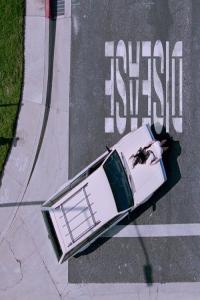Torrent details for "[CLASSICAL] - Delius Hassan - complete incidental music - 2024 - WEB FLAC 16BITS 44.1KHZ-EICHBAUM" Log in to bookmark
Name:
Controls:
Language:
 English
EnglishTotal Size:
276.92 MB
Info Hash:
6ffe17fb7a5f130a534136b1a7aa52e4300255dc
Added By:
Added:
21-04-2024 07:45
Views:
179
Health:

Seeds:
12
Leechers:
4
Completed:
65

Artist: Zeb Soanes, Britten Sinfonia Voices, Britten Sinfonia, Jamie Phillips
Title: Delius: Hassan - complete incidental music
Year Of Release: 2024
Label: Chandos
Genre: Classical
Quality: FLAC (tracks)
Total Time: 01:20:04
Total Size: 276 MB
Tracklist:
1. Delius: Hassan, DCW 8, Act 1 Scene 1: Prelude. Slow – Quietly but expressively (4:22)
2. Delius: Hassan, DCW 8, Act 1 Scene 1: We are in old Baghdad (Narrator) (2:29)
3. Delius: Hassan, DCW 8, Act 1 Scenes 1 & 2: Interlude between (1:51)
4. Delius: Hassan, DCW 8, Act 1 Scene 2: Moonlight. The street of Felicity, by the fountain of the two pigeons, in from of the house (0:26)
5. Delius: Hassan, DCW 8, Act 1 Scene 2: It is later that night (Narrator) (0:57)
6. Delius: Hassan, DCW 8, Act 1 Scene 2: Serenade. Con moto moderato (1:49)
7. Delius: Hassan, DCW 8, Act 1 Scene 2: The shutters open, and Yasmin appears (Narrator) (2:27)
8. Delius: Hassan, DCW 8, Act 1 Scene 2: Melos. Hassan falls under the shadow of the fountain. The first light of dawn shines in the sky. Very quietly (0:52)
9. Delius: Hassan, DCW 8, Act 1 Scene 2: Chorus behind the scenes. Not too slow (2:08)
10. Delius: Hassan, DCW 8, Act 1 Scene 2: The first light of dawn shines in the sky (Narrator) (1:27)
11. Delius: Hassan, DCW 8, Act 2 Scene 1: Prelude. With animation (0:51)
12. Delius: Hassan, DCW 8, Act 2 Scene 1: The filthy, inanimate bulk of Hassan… (Narrator) (0:38)
13. Delius: Hassan, DCW 8, Act 2 Scene 1: Fanfare preceding the Ballet (Gaily, outside) (0:08)
14. Delius: Hassan, DCW 8, Act 2 Scene 1: No. 1, Dance of the Beggars. There enters the most awful selection of Eastern beggars the eye could imagine. Quick and vigorously (1:20)
15. Delius: Hassan, DCW 8, Act 2 Scene 1: And then, after the Beggars (Narrator) (0:06)
16. Delius: Hassan, DCW 8, Act 2 Scene 1: No. 2, Chorus of Women. (Enter a band of fair and dusky beauties.) Quietly (2:22)
17. Delius: Hassan, DCW 8, Act 2 Scene 1: No. 3, Divertissement. Con moto (2:28)
18. Delius: Hassan, DCW 8, Act 2 Scene 1: Rafi is then announced as The King of the Beggars (Narrator) (0:58)
19. Delius: Hassan, DCW 8, Act 2 Scene 1: No. 4, General Dance. Andante moderato – Allegro – Più mosso (2:54)
20. Delius: Hassan, DCW 8, Act 2 Scene 1: Rafi is asked why he hates the Caliph so (Narrator) (0:47)
21. Delius: Hassan, DCW 8, Act 2 Scene 1: Chorus of Beggars and Dancing Girls (from behind the scene, after the descent of the iron curtain). Comodo (1:21)
22. Delius: Hassan, DCW 8, Act 2 Scene 1: This House of the Moving Walls… (Narrator) (0:51)
23. Delius: Hassan, DCW 8, Act 2 Scene 2: The Street of Felicity. Very quietly (0:39)
24. Delius: Hassan, DCW 8, Act 2 Scene 2: The SOS message has fallen from the balcony… (Narrator) (1:11)
25. Delius: Hassan, DCW 8, Act 2 Scene 2: Music accompanying Ishak's poem. Not too slow (1:32)
26. Delius: Hassan, DCW 8, Act 2 Scene 2: Yasmin's regard for Hassan has instantly shifted (Narrator) (0:39)
27. Delius: Hassan, DCW 8, Act 3 Scene 1: Prelude. Moderato – Slower (1:34)
28. Delius: Hassan, DCW 8, Act 3 Scene 1: Curtain (0:43)
29. Delius: Hassan, DCW 8, Act 3 Scene 1: Hassan is installed at the Caliph's Palace (Narrator) (0:27)
30. Delius: Hassan, DCW 8, Act 3 Scene 1: Interlude between Scenes 1 and 2. Very quietly – Slow (1:44)
31. Delius: Hassan, DCW 8, Act 3 Scene 1: The slaves inform Hassan that there is a beautiful lady… (Narrator) (1:05)
32. Delius: Hassan, DCW 8, Act 3 Scene 2: The great Hall of the Palace. With vigour – Quieter (2:26)
33. Delius: Hassan, DCW 8, Act 3 Scene 2: We are in the Great Hall of the Caliph's Palace (Narrator) (1:00)
34. Delius: Hassan, DCW 8, Act 3 Scene 2: Fanfares, in the great Hall of the Palace (0:11)
35. Delius: Hassan, DCW 8, Act 3 Scene 2: As more and more people gather… (Narrator) (0:29)
36. Delius: Hassan, DCW 8, Act 3 Scene 2: Entry of the Caliph. Pompously (0:18)
37. Delius: Hassan, DCW 8, Act 3 Scene 2: The Caliph declares the trial of the beggars open (Narrator) (0:09)
38. Delius: Hassan, DCW 8, Act 3 Scene 2: Fanfares (0:22)
39. Delius: Hassan, DCW 8, Act 3 Scene 2: Then Rafi, King of the Beggars, is summoned (Narrator) (1:18)
40. Delius: Hassan, DCW 8, Act 4 Scene 1: Prelude. Slow – Passionately (4:14)
41. Delius: Hassan, DCW 8, Act 4 Scene 1: In the Palace's dark vaults (Narrator) (0:26)
42. Delius: Hassan, DCW 8, Act 4 Scenes 1 & 2: Interlude between Scenes 1 and 2. Slow and ponderously (1:58)
43. Delius: Hassan, DCW 8, Act 4 Scene 2: Sunlight streams through the cell's grating (Narrator) (1:14)
44. Delius: Hassan, DCW 8, Act 5 Scene 1: Prelude. Quick – Slower, softer - Not too quick – Curtain. The Garden of the Caliph's Palace, in front of a pavilion. Sunset. Quietly – Enter the Caliph with attendants as Hassan comes from his Pavilion (2:30)
45. Delius: Hassan, DCW 8, Act 5 Scene 1: The song of the Muezzin at sunset (1:09)
46. Delius: Hassan, DCW 8, Act 5 Scene 1: With another sunset approaching (Narrator) (1:51)
47. Delius: Hassan, DCW 8, Act 5 Scene 1: The Procession of Protracted Death. March tempo (2:53)
48. Delius: Hassan, DCW 8, Act 5 Scene 1: The long, dreadful execution ensues… (Narrator) (1:29)
49. Delius: Hassan, DCW 8, Act 5 Scene 2: Prelude to the last scene. With flowing movement (3:04)
50. Delius: Hassan, DCW 8, Act 5 Scene 2: Closing Scene. Slow – (The Caravan recedes farther and farther into the distance.) – (Dying away in the distance) (10:16)
Although he had initially declined the commission, Delius was persuaded to write the incidental music for Hassan by the actor and director Basil Dean, in July 1920, for performances he was planning for His Majesty’s Theatre, London, the following year. Much of the music was drafted within a few weeks, and the score would eventually prove one of the greatest successes of Delius’s career. Dean’s plans for the project encountered significant obstacles and delays, however, and he had to commission additional music from Delius to cover the production’s complex scene changes. The London première eventually took place on 20 September 1923 and was a critical sensation. Flecker’s play is a sinuous double-narrative that intertwines the twin stories of the lovelorn but worldly wise Hassan, confectioner at the court of the cruel and vindictive Caliph Haroun al Rashid (called Haroun ar Rashid in Flecker’s play), and the young lovers Pervaneh and Rafi, caught up in the aftermath of a failed uprising and condemned to a terrifying and brutally protracted death. In tone and setting, Flecker’s text drew on nineteenth-century English translations of One Thousand and One Nights as well as other heavily fictionalised accounts and travel literature. Very much a product of the racial and class-based attitudes of its time, the play revels in imaginary scenes of a despotic Eastern court and its gruesomely barbaric practices.















































